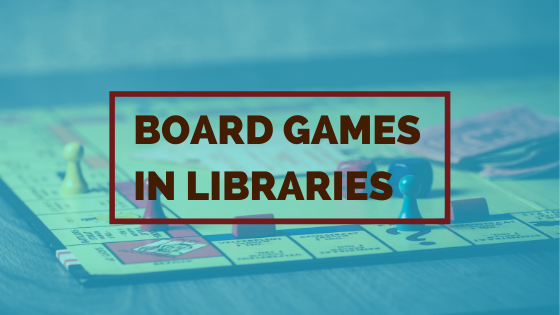Nowadays, in the rapidly digitalizing world, many libraries strive to become more digital. Whether that is by renting out e-books, becoming more automated, or even offering virtual reality technology. While all the aforementioned things are useful and help libraries keep up with the times, occasionally, sticking with traditional activities can be beneficial for development, memory skills and educational purposes.
Are you curious what Princh can offer for your library and your patrons? Then check out the Ultimate Guide To Princh For Libraries, to learn about all the benefits our solution offers! You can download our guide here.
History of board games
One of these activities is board games. Dating back to 5,000 BC, board games have been entertaining and educating people all over the world for over 7,000 years. At first, they were as simple as dice played by people in South-East Turkey. That then evolved into Senet, a popular game among pharaohs in Ancient Egypt (3100 BC) for which the gameplay rules are debated by historians. Followed by The Royal Game of Ur in 2650 BC (Iraq), played with two sets, one black, and one white, of seven markers and three tetrahedral dice (4-sided dice). The birth of chess is marked at 400 AD in Persia, and lastly, the first edition of what we now know of as Monopoly (then called The Landlord’s Game) was released back in 1903 in the United States.
With all that rich history, they have now evolved into intricate, strategy-focused games that improve cognitive development for individuals of all ages all over the world.
Benefits of board games
As mentioned before, playing board games supports sharper thinking skills, better long-term memory skills, problem solving skills, and reduces stress in individuals while increasing overall happiness due to the release of endorphins during play.
Additionally, research done by the Psychologists at the University of Edinburgh, where 1,000 people aged 70 were tested for memory, problem solving, thinking speed and general thinking ability, indicated that those who regularly played board games and non-digital games scored better on memory and thinking tests.
Family Board Games at South Ruislip Library. The competition was intense! 💥 Games included #Monopoly and Narnia Risk Junior. #libraries #boardgames ^F pic.twitter.com/i38H0ycnxt
— Hillingdon Libraries (@Hill_libraries) April 20, 2019
However, board games aren’t only beneficial to elderly people. They also increase communication skills, math skills, literacy and hand-eye coordination in young children, as well as healthy brain development in older kids and teens and assist in practicing essential cognitive skills for adults.
Other reasons why to incorporate board games
Other than benefitting visitors’ thinking skills, brain and mental health, libraries providing board games can also help more people get into the hobby due to some not being able to afford purchasing the board games themselves. They can also schedule events regarding the more strategic board games with the addition of purely providing their visitors with a time well spent socially interacting.
Where to start?
If your library doesn’t already have board games, then you should start building up your collection with a few board games for each age group (such as children, teens & adults and elders). That way all your visitors have age-appropriate games to enjoy!
Board games in the Library today #fmsteach pic.twitter.com/UCCPbs9mf0
— Jessica Lairmore (@JessicaLairmore) February 15, 2022
Unsure where to start? Have a look at some board game suggestions for all age groups.
Board Games for kids
- Chutes and Ladders (aka Snakes and ladders) – this board game is great for kids practicing numbers.
- Wildcraft! An Herbal Adventure Game – this educational game teaches kids about medicinal and edible plants and how they can be used in first-aid situations.
- Dixit – this game is perfect for all the creative little ones.
Board Games for teens & adults
- Catan – this option is a great strategy game for a group of players.
- Terraforming Mars – this game is the most complex on this list, however, it is another great strategy game option.
- Wingspan – an educational game for individuals wishing to learn about birds, their habitats, diets, and markings.
Board Games for elders
- Rummikub – this game is great for both adults but also elders wishing to keep their mind sharp.
- Scrabble – this classic game gets the entire brain engaged, resulting in improved memory and cognitive skills.
- Blokus – a great game for Tetris lovers.
Board gaming in other libraries
However, if your library does not have the resources to purchase the board games with your own resources, then there are some great initiatives you can take part in to bring board games to your library.
For example, a library in Australia started a program called ‘Library Got Game’. They acquired a couple of board games and let patrons play them twice a month. When they are ready for some new ones, they let the patrons choose which ones are most attractive to them. For funding and sourcing of the games, this library creates contacts with local game companies and has a ‘friends of the library’ group, which also funds some of the games.
Why board games should be implemented
Board games can be a beneficial activity for libraries to offer for visitors of all ages due to their endless benefits. Therefore, all libraries should make an effort to implement them as one of their offerings, whether by allowing patrons to take them home or play on-site.

Samanta Stekerhofa
Samanta is a content writer for the Princh Library Blog. Princh, which is a printing and payment solution designed specifically for and with public libraries, makes a consistent effort to provide advocacy for libraries and library professionals. The Princh blog discusses library specific topics that inform their readers of library trends, insights, technologies and more.
Recent posts
Green Libraries: How Sustainable Design is Shaping the Future of Public Libraries
In this week's Princh Library Blog post, recurring guest writer Sam L. Bowman discusses an ever so important topic: sustainable design and [...]
Librarians Supporting Digital Literacy in the Community
In this week's Princh Library Blog, Nina Grant covers why digital literacy is important, the variety of ways in which librarians are supporting [...]





Leave A Comment